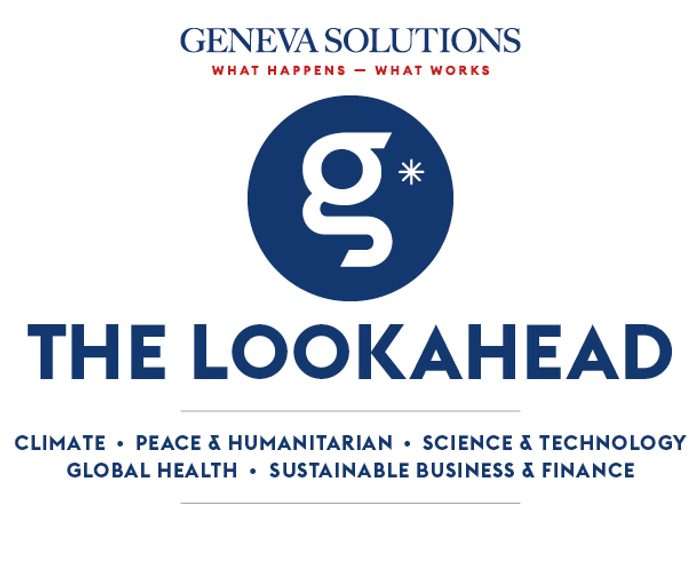Good morning, this is Paula. Two years after stepping down from his decades-long leadership at Human Rights Watch, Kenneth Roth talks to me about how he built the organisation and its reputation for pressuring autocrats from pursuing abuses, the topic of his recently published memoir.
This week, the Human Rights Council in Geneva concludes its first session of the year. Here’s what to look out for. |

|

Kenneth Roth at a book signing following the release of his memoir Righting Wrongs: Three Decades on the Front Lines Battling Abusive Governments, in Geneva, 20 March 2025. (Geneva Solutions/Paula Dupraz-Dobias)
|
|
Kenneth Roth, three decades of ‘naming and shaming’ autocrats.
After leading Human Rights Watch for three decades, Kenneth Roth stepped down in 2022 to write a memoir about his mission to uphold rights and pressure governments that violate them to change their policies. He tells us how he made that happen and why he thinks China is the biggest threat to the human rights system.
Geneva Solutions
|
|
|
🇺🇳IT’S A WRAP.
The Human Rights Council is closing its first session of the year on Friday. But before that, it will take a look at a region where intensifying conflict, coupled with aid disruptions, is exacerbating the humanitarian crisis.
|
|
Wars in Africa.
The Democratic Republic of the Congo, where UN agencies have warned of a food crisis driven by the conflict, price hikes and aid cuts, will be the subject of a debate on Tuesday morning.
Attention will then turn to South Sudan, which teeters on the brink of civil war as the arrest of one of the vice-presidents threatens to unravel the 2018 peace deal. Deutsche Welle has a good explainer of what’s happening. Finally, the council will discuss the situation in the war-torn Central African Republic.
|
|
Decision time.
Drawing its six-week session to a close, between Wednesday and Friday, the council will consider some 30 draft resolutions, with the most sensitive usually left for the end.
Among the proposals worth noting is the renewal of the Commission of Inquiry on Syria, which is likely to pass by consensus for the very first time since its inception. Ukraine will also seek to extend the Commission of Inquiry on Russia’s invasion for the first time without the US’s support. Since the country left the UN rights body, it is unlikely that it will meddle or side with Russia, but its latest foreign policy shifts indicate that nothing can be ruled out.
|
|
Latin American countries
are also ramping up the pressure on the Ortega regime, raising the level of emergency in their draft resolution on Nicaragua, which has stripped the citizenship of over 500 people and closed up to 5,600 NGOs, 29 universities and nearly 60 media.
The text also points with concern to the country’s increasing isolation from the global community after it exited the UN agencies for labour, agriculture and migration, as well as the Human Rights Council, and in a first, asks that the UN-backed experts present their findings to the General Assembly.
– By Michelle Langrand
|
|

|
|
💸US aid cuts: what strategy to save International Geneva?
International Geneva and the Swiss government have watched with consternation as the United States and several other nations reduce their financial contributions — and in some instances, even withdraw political support — from some of the 40 international organisations and 476 NGOs that call Geneva home. Organisations like the International Organization for Migration and the UN Refugee Agency have already announced thousands of layoffs. Uncertainty abounds for some 36,000 foreign civil servants who work here and for agencies whose collective annual expenditures exceed CHF4 billion, crucially supporting the local economy.
What strategies are Geneva's local authorities and the Swiss federal government considering to reinforce the strength and resilience of international Geneva? Are they prepared to address the threats facing a multilateral system originally designed in the wake of World War Two to foster peace and diplomacy? What actions should local and federal leaders take to successfully navigate this evolving diplomatic and economic landscape? Join us to discuss.
🗓️12:15 pm, 10 April
📍Domaine de Penthes & online
🎙 Speakers include:
⭐ Béatrice Ferrari, director of international affairs, state of Geneva
⭐Carlo Sommaruga, Geneva state councillor
⭐Nicolas Walder, Swiss national councillor
⭐Fabrice Eggly, director of the Fondation pour Genève
⭐Nicolas Bideau, spokesperson of the Swiss Federal Department of Foreign Affairs (TBC)
Moderated by Luisa Ballin, UN-accredited journalist, and Kasmira Jefford, editor-in-chief of Geneva Solutions
The discussion will be in French only.
🔗 Register now to attend in person or online.
|
|
|
GS news is a new media project covering the world of international cooperation and development. Don’t hesitate to forward our newsletter!
Have a good day!
|

|
|
Avenue du Bouchet 2
1209 Genève
Suisse
|
|
|
|









